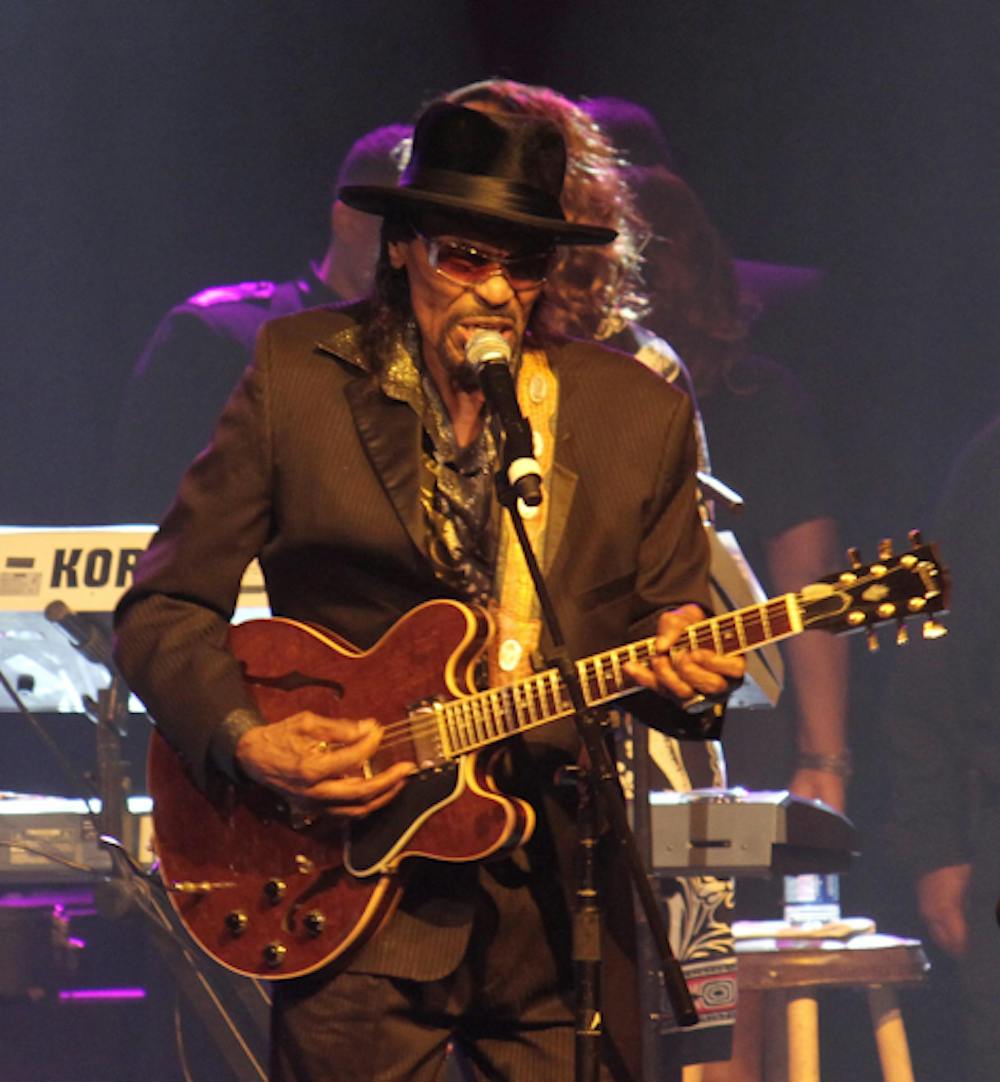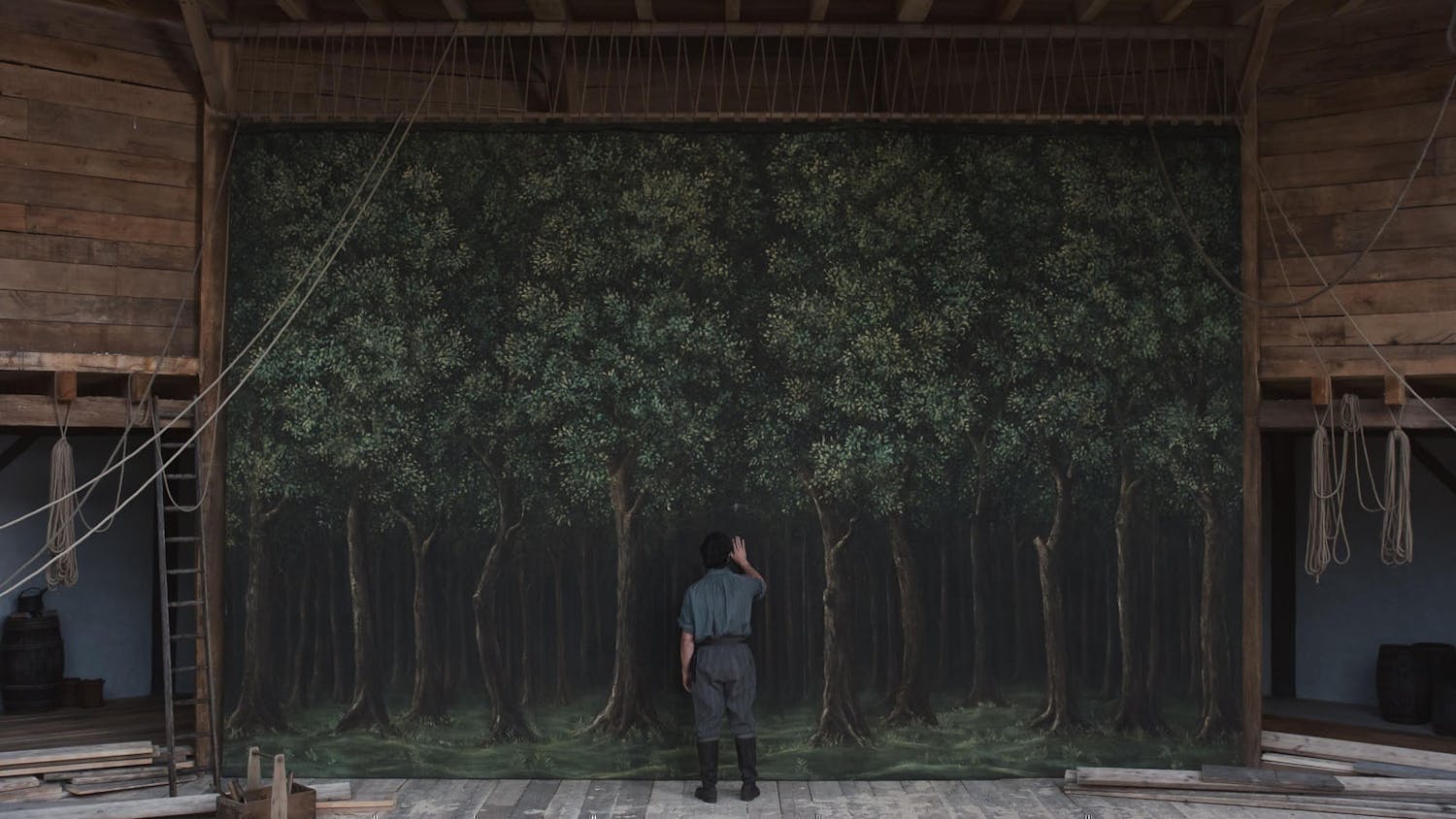Dubbed the official music of D.C., Go-Go music’s origins span long and wide across the city’s history and continue to grow today, thanks to the Black artists and musicians who created and shaped the genre.
Originating in the 1970s, Go-Go music blossomed in a club called “The Maverick Room” in D.C.’s Edgewood neighborhood. It was there that Chuck Brown — who would later become known as “The Godfather of Go-Go” — and his band The Soul Searchers first began experimenting with what would eventually become Go-Go music.
Taking inspiration from genres such as funk and soul, Go-Go typically features bass and percussion, and a call-and-response component as well. Performers often play nonstop, which makes Go-Go good for dancing. Since the ‘70s, Black artists across the nation have made and continue to make extraordinary contributions to the genre overall — whether in art exhibits, solo acts, or entire bands and groups.
Though Brown and “The Soul Searchers” began their work with Go-Go music in the early ‘70s, it wasn’t until they released the song “Bustin’ Loose” in 1979 that Brown (and the Go-Go genre itself) really took off.
Soon after, artists across the nation were diving into Go-Go music and making their own contributions. Groups like Rare Essence and Junkyard Band began to form in the late ‘70s and early ‘80s, putting their own spin on what would become the official music of D.C. — and the origins of these groups weren’t your typical band formations either.
Junkyard Band began with a group of children playing music on plastic items like buckets and cans. Rare Essence started with elementary school students in Southeast Washington joining together after school to play the (at the time) new music that had recently begun gaining traction.
Ronald Moten, the co-founder of the “Don’t Mute D.C.” movement and co-founder of the Go-Go Museum, said Go-Go is something that’s embedded into the very culture of D.C.
“One thing is it’s the heartbeat of our city, it’s always been at the forefront of things happening.” Moten said in an interview with The Eagle. “It’s also recently sparked a movement of preserving museum culture, not just in D.C., but in cities throughout the world who are going through the same thing.”
“It’s something that we own, it’s something that we develop, and it’s the only music probably in the world that’s not been colonized. So you know, Washingtonians have something to be proud of and teach our children — this and the people who are not from here, why music is so important.”
Moten also said that music is not only important to Washingtonians but to the Black community.
“Music and the drum and the voice are the first two forms of communication.” Moten said. “And for African Americans, for Black people, it’s always been something that’s kept us alive — whether it’s coming on the slave ship, or in the ‘60s in the movement where music was used to motivate the young people to help end segregation.”
Today, Go-Go music has continued to influence matters outside of music as well.
When a Metro PCS store in Shaw was forced to turn off the Go-Go songs their vendors were known for in 2019, the action sparked a movement putting Go-Go music in the spotlight.
Following the store’s silencing, the “Don’t Mute D.C.” movement quickly gained traction. Within its first year, the movement’s work led to the “Don’t Mute D.C.” bill (which would later declare Go-Go music the official music of D.C.) and returned Go-Go music to the very store where the protests originated.
Yet, the movement is nowhere close to being done and continues to work today to preserve Go-Go music and Go-Go culture. Moten said the movement has not only returned Go-Go music to the city but continues to help people through policymaking and education as well.
“A lot of policies since ‘Don’t Mute D.C.’ have helped Black people acquire equity through policy, through funding and things like that.” Moten said.
“It started the conversation that led to action. And action is continuing but we just have to keep people activated and educated on why the music culture and conversation is so important — like everything we do with ‘Don’t Mute D.C.’ normally has music and a conversation with education. And that’s what’s so important.”
The preservation of the culture and history behind Go-Go music has not only been a goal for the “Don’t Mute D.C.” movement but has continued to evolve through the Black community of D.C. as well. Today, hundreds of artists, exhibits, murals and more are continuing Go-Go’s legacy, with many of them taking place in the city where it all started.
The Go-Go Archive, for example, was established at the D.C. Public Library in 2012 and currently holds various books, pictures, tweets, records and more that pertain to the legacy of Go-Go music. In 2022, the “Disco to the Go-Go” exhibit by Justin “Yaddiya” Johnson honored the bright emotions Go-Go music brings people. In 2021, a mural by Kaliq Crosby honoring Go-Go’s legacy was unveiled on The Shay — the building across from the Metro PCS store where the “Don’t Mute D.C.” movement first began.
Natalie Hopkinson, an associate professor of communication at American University and co-creator of the “Don’t Mute D.C.’s Go-Go Music and Culture” petition, wrote and published the book “Go-Go Live: The Musical Life and Death of a Chocolate City.” And artists like Black Alley and Bela Dona Band continue to make and put their own spin on Go-Go music today.
Even beyond newer contributions to the genre and its legacy, Go-Go music, for many people, is something greater than music. A culture, a community and a way of being.
“I mean, it’s just, it’s just a part of my soul.” Moten said. “It’s part of my soul, it’s part of my spirit, and it gives me the drive to fight.”
This article was edited by Kylie Bill and Nina Heller. Copy editing done by Isabelle Kravis, Sophia Rocha and Stella Guzik.





